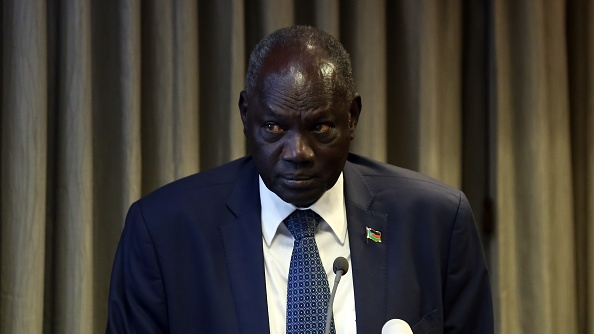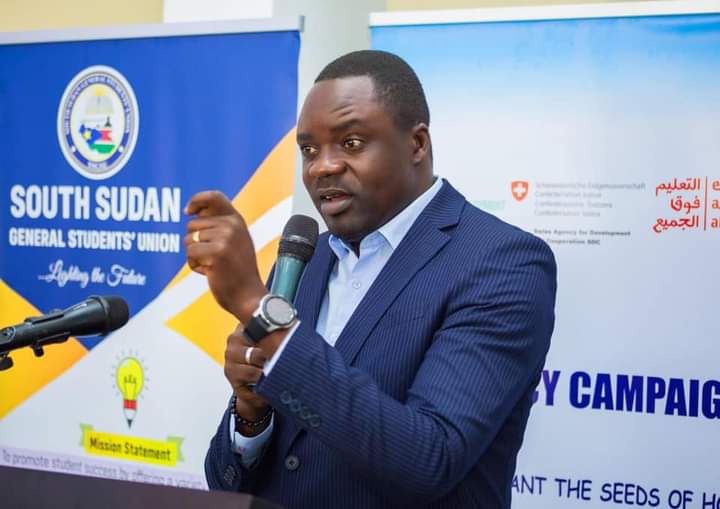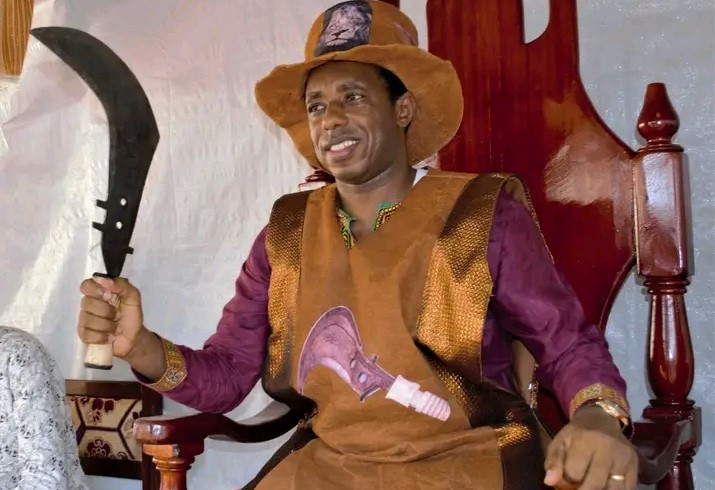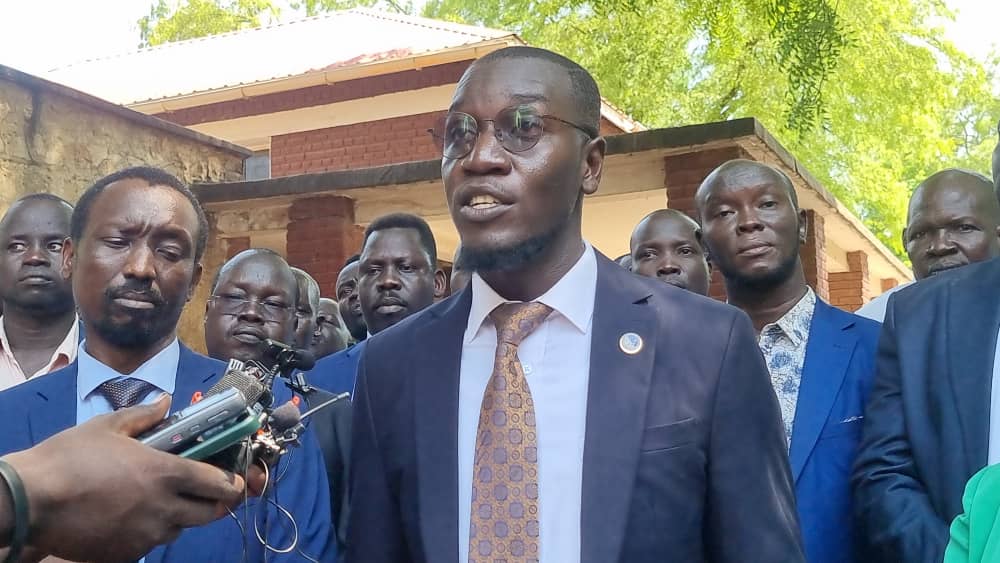Gov’t faces fresh dilemma on peace deal

The Minister of Information, Michael Makuei Lueth, has said South Sudan is left with two options to determine the fate of general elections slated for 2023.
With time running out amid pending tasks to be accomplished, Makuei said the country would have to either choose to go to the polls without a permanent constitution or seek an extension of the transitional period.
Makuei, who also serves as the government spokesperson, doubted the parties’ ability to complete the election’s prerequisites on time. He said the outstanding tasks may not be completed within the remaining 15 months.
“Now with this period really, shall we be in a position to complete these processes within the15 months? And in case we don’t complete it within that period, what is the way forward? That is another issue before us,” the minister posed as he addressed the fifth governors’ forum in Juba yesterday.
“And again, if we don’t complete within that period, what is the way forward? That is another issue before us. So, we need to think of what to do in case the constitution doesn’t come out on time, ” said Makuei.
According to Makuei, the onus is on the parties to decide whether or not to conduct elections without a permanent constitution in 2023 or extend the period to have ample time to enact the permanent constitution and go for the race afterwards.
“And in the course of doing that, we have two options: either to run elections in accordance with the current constitution…. and allow the parliament, which is the reconstituted assembly, to amend the current constitution to conform to what you have in mind, or extend your period. Even though there have been so many extensions, we extend it again so that you get enough time to pass your constitution,” Makuei said.
Makuei was speaking at the second session of the five-day governors’ forum on Tuesday, organised by the Office of the President, in collaboration with the United Nations Development Programme (UNDP), aimed at coming up with effective ways of implementing the peace agreement.
Prerequisite to election
The 2018 revitalised peace agreement provides for the country to have a permanent constitution that will stipulate, among other things, the structure of the government and its roles, and the number of constituencies.
South Sudanese refugees in neighbouring countries and the Internally Displaced Persons (IDPs) are to be repatriated, and this exercise should be preceded by holding the general households and population census to determine the number of voters.
All these and voter registration, one of the more expensive activities, have to be done within the remaining 15 months, ending in February 2023.
Other outstanding tasks critical to the holding of the general elections include the completion of the implementation of the security arrangement provisions, such as graduation and redeployment of the 83, 000 necessary unified forces.
“This transitional period is supposed to end with elections, [and] for us to have fair, free, transparent elections, we must have security forces who protect the state, its people and will not interfere in the elections’ processes. And … if we are going to go for elections, we must complete in the shortest possible time the security arrangements,” the First Vice President Dr Riek Machar said on Monday.
Criticism
Though the coalition government was formed after the extension of the pre-transitional period three times without much work being done by the parties, it was yet unclear which option they would opt for.
However, some lawmakers, activists, and international communities have earlier warned against premature elections in the country without the implementation of the critical peace provisions.
“Our leaders should know that to put these things together: security first, freedom second and then the constitution, before we go for election,” Dr Aldo Ajou Deng, a lawmaker in the reconstituted Council of States said in October.
The First Deputy Speaker of the RTLNA, Nathaniel Oyet, said: “From 2018 to 2021, we have not even graduated a single soldier, and now we are talking about the election. You know, some of these parties have arms, they have forces, if we go for elections as commanders in chief and as generals, I wonder what kind of elections we will be holding.’’
In response to President Kiir’s reiteration to go for general elections in 2023, in March 2021, the Special Representative of the United Nations Secretary-General Nicholas Haysom warned that the slow implementation of the security arrangements could obstruct elections after the end of the transitional period.
“We witnessed an increase in violence, particularly communal violence and humanitarian challenges. “The slow security arrangements can be an obstacle for the coming election,” said Mr Haysom in September this year.


